SECURE API-BASEDS Integration
API PENETRATION TESTING
An application programming interface (API) penetration test is an ethical hacking security assessment carried out to validate that the APIs in scope are appropriately secured. The tester uses the same tactics, tools, and techniques as would be used by a real-world attacker. The objective is to discover vulnerabilities that could impact the confidentiality, integrity, or availability of of an organization’s resources and provide an actionable remediation strategy.
Tell us
about your scope
What You'll Get

Key findings, risks, impacts, and critical recommendations.
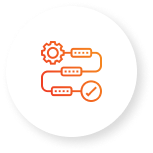
Overview of methodologies, standards, tactics, and techniques used.

Detailed vulnerability analysis, reproduction steps, PoC, evidence.

Strategic and tactical walkthrough on how to fix vulnerabilities.

Comprehensive advice on cybersecurity enhancement strategies.

Offered once vulnerabilities are fixed.
SECURE YOUR APIs
What is API Penetration Testing?
API penetration testing is a type of ethical hacking assessment aimed at detecting and identifying loopholes and vulnerabilities before they are exploited for malicious gain. It involves simulating attacks on APIs to uncover potential vulnerabilities, and ensuring that the communication between different software systems is safe and protected from unauthorized access, data breaches, and other security incidents. With the sophistication of cyber-attacks and the million-dollar bug bounty programs, organizations are beginning to prioritize API penetration testing investments. At Secragon, we specialize in predominantly manual penetration tests, conducted by experienced ethical hackers. Along with leveraging industry standard methodologies to ensure a thorough security assessment is conducted under safe and controlled conditions, our expert team utilizes an advanced mix of public and in-house developed exploits and in-depth analysis to discover complex vulnerabilities not yet published and often, not yet discovered. The objective is to penetrate the target APIs and dependent applications, document the threat profile, and provide a clear risk mitigation strategy.
We don’t just point out security holes; we help you solve them and comply with standards and regulations.
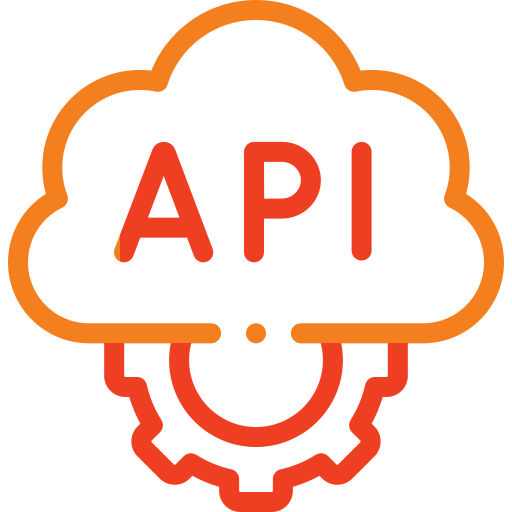
Protecting the information transmitted through APIs, significantly reduces the risk of data breaches and security incidents.
Improving the efficiency and functionality of your API ecosystem, ensuring smooth and effective operations.
As industries evolve, so do cybersecurity standards. Meet legal and regulatory requirements for data security.
Optimize security investments by focusing on critical risks, optimizing the use of development resources, and ensuring higher ROI.
Decrease the likelihood of API-related disruptions or performance issues, which can impact user experience and business operations.
Ensuring the security and integrity of your cutting-edge API-driven projects, protecting them from potential threats.
Why Conduct an API Penetration Test?
The growing prevalence of APIs in modern software makes API security paramount for all organizations. From individual API endpoints to the overall architecture, every aspect of an API can present potential vulnerabilities that attackers may try to exploit.
PROTECT AGAINST THE LATEST THREATS
When Should You Perform API Application Penetration Testing?
Penetration Testing should be performed as frequently as required by the organizational security policy. In addition to the regular schedule, penetration testing is particularly advisable in the following situations:
Before
New API Launch
Test new APIs for security issues before public release to identify and fix any vulnerabilities.
Post-Security
Incidents/Breaches
Conduct thorough testing to understand breach impacts and address all identified vulnerabilities.
After
Major Updates/Changes
Essential to reassess for vulnerabilities after significant updates or modifications to the API.
Integrating
Third-party APIs
Check that integrations with third-party APIs do not introduce security weaknesses or risks.
Regular
Security Audits
Particularly important in industries with sensitive data, adhering to specific data protection standards.
Reacting
to User Feedback/Bugs
Address and verify security concerns raised by users or found in bug reports to maintain API integrity.
We Provide Expert Solutions And Definite Results

Transparent
Pricing
Clear, upfront, with no
hidden costs.

Dedicated Project
Manager
Your security is our
commitment.

Retesting After
Fixes
Ensuring threats are
truly eliminated.

Affordable
Expertise
Premium protection,
reasonable rates.

Customized
Approach
Solutions fitted to your
specific needs.

Proactive
Protection
Effectively securing your
digital assets.
What Will be Assessed During an API Penetration Test?
API penetration testing involves a detailed examination of the API’s security posture, focusing on several critical areas:
Authentication and
Authorization
Testing the processes for verifying user identities and access control.
Input Validation and
Output Encoding
Checking the API’s handling of user input and output to prevent vulnerabilities like SQL injection and XSS.
Error Handling
and Information Leakage
Analyzing the API’s error responses to prevent sensitive information disclosure.
Business Logic
Vulnerabilities
Identifying and assessing any flaws in the API’s business logic that could be exploited.
Data
Encryption
Evaluating the security of data in transit, focusing on the implementation of SSL/TLS encryption.
And More
This includes rate limiting and throttling policies, session management, configuration and deployment management, and other critical security aspects.
Our Penetration Testing Process
If your organization has not gone through a penetration test before, you may not know what to expect. Even if you have, maybe you are wondering what Secragon’s stages of penetration testing are. Here is a high-level break down of each step of our proven process:

Activities: Engage stakeholders, define targets, plan logistics for efficient, transparent execution.
Outcomes: Scope Validation, Proposal, Contract.
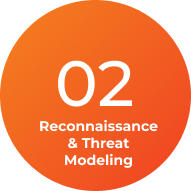
Activities: Environment preparation, OSINT collection, attack scenario planning.
Outcomes: Strategy Development, Threat Insight.
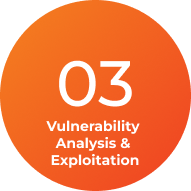
Activities: Vulnerability identification, active exploitation, privilege escalation, execution of realistic attack scenarios, data and information collection, persistence maintenance, and documentation of steps.
Outcomes: Comprehensive Report, including Executive Summary, Technical Details, Impact Analysis, Recommendations.
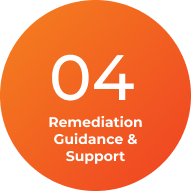
Activities: Supporting vulnerability remediation with actionable steps and advice, answering follow-up queries.
Outcomes: Remediation Plan, Security Enhancement.
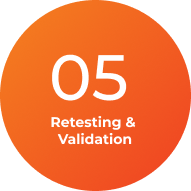
Activities: Validate the effectiveness of remediation efforts through complementary retesting.
Outcomes: Re-test Results, Attestation.
Frequently Asked Questions
Couldn’t find the information you were looking for?
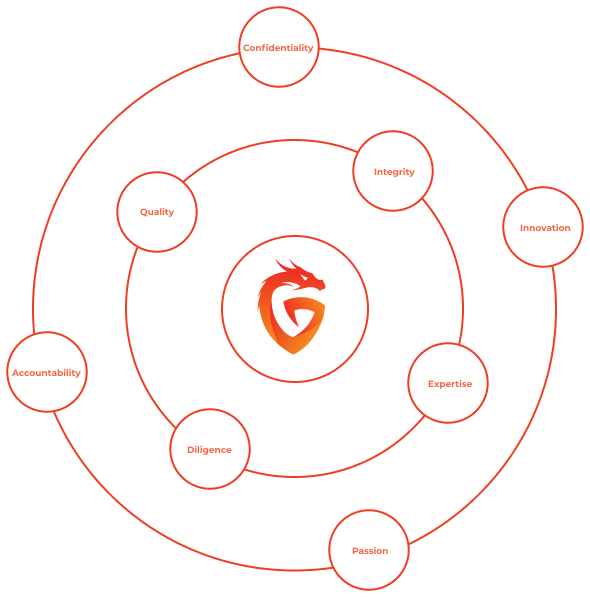
SECRAGON, YOUR CYBERSECURITY PROVIDER
We, at Secragon, are a team of certified ethical hackers, visionary security engineers, seasoned penetration testers, and committed project managers… but first of all – professionals, who LIVE and BREATHE Offensive Security. Along the list of qualifications, titles, and credentials, we bring a real “think outside of the box” mindset to every project and we constantly strive to learn, explore, and push forward to master complex concepts and deliver top-notch services and results.


